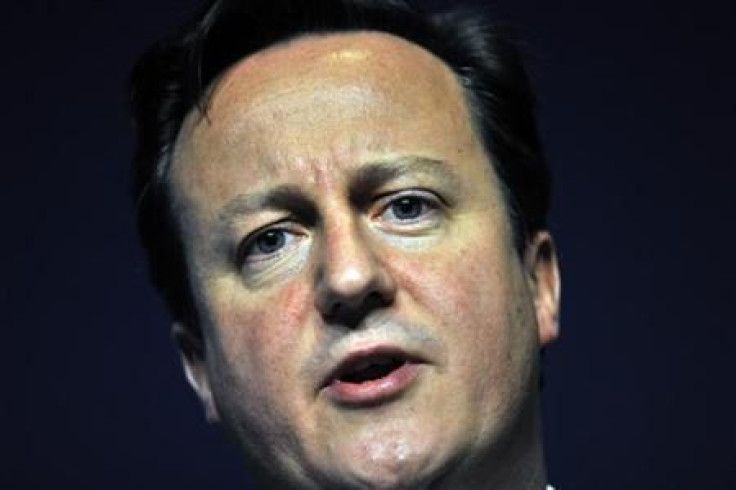UK Economic Outlook 2012: Dark Clouds from Home and Abroad
ANALYSIS

The UK economic outlook for 2012 does not look bright.
Paul Fisher of Bank of England told Bloomberg News that the UK economy could “easily” register negative growth in the fourth quarter of 2011. His colleague Adam Posen recently told the Independent that the economy was “cratering” and the economic growth in 2012 will likely be “0.5% or above.”
Morgan Stanley UK economist Jonathan Ashworth is a bit more optimistic. He and his colleagues expect 2012 economic growth to be 1.2 percent.
Like many developed Western countries, the biggest challenge to UK’s economic outlook is weak consumer demand.
The UK’s original plan was to cut down on domestic consumption and shift more to exports.
Before the 2008 to 2009 global financial crisis (and in response to this crisis), the entire country of the UK ran up huge debts. In other words, they consumed more than earned and a big part of their economy hinged on this excessive domestic consumption.
For 2010, UK’s public sector debt stood at 89 percent of GDP, corporate debt was at 126 percent of GDP, and household debt was at 106 percent of GDP, according to the Telegraph.
This borrowing binge was enabled by easy credit conditions before the global financial crisis. On the government level, it was partly spurred by the profligacy of the Labour Party, which ran up huge deficits starting from 2002.
After the global financial crisis, credit conditions tighten considerably, the economy deteriorated, and confidence sagged. Households and businesses became weaker sources of demand because they could no longer borrow and were forced to pay down their debts.
The government could have gone down two routes (because it still could borrow more), depending on the belief of the politicians in charge. One theory asserts that governments should increase spending in such times to compensate for the cutback of the private sector. Another theory asserts that governments need to limit spending in order to keep debts from spiraling out of control.
In May 2010, David Cameron, a Conservative Party politician who subscribes to the latter philosophy, took control of the UK government and implemented a multi-year austerity measure to cut spending and raise taxes.
With that move, all of UK – the government, the consumer, and businesses – cut back on consumption.
UK hoped to make up for this slack with foreign demand. This plan worked to a degree.
Ashworth said the pound sterling fell 25 percent trade-weighted in the 18 quarters since its peak in 2007. Many factors caused this depreciation, but the UK’s own loose monetary policy was certainly a key driver.
Ashworth said the weak pound sterling helped the UK economy raise exports. He said this economic boost was similar to the one seen from the massive pound sterling devaluations in 1992 and 1996.
This boost is limited, however, because global consumer demand is weak, particularly for the UK’s main trade partners.
UK’s biggest exports destination is the Eurozone, which is struggling with a sovereign debt crisis.
The Eurozone debt crisis drives down the value of euro (which makes UK exports more expensive), dampens the Eurozone’s economy, hurts Eurozone consumer confidence, and even threatens a banking crisis in the UK. All of these developments lead to less demand for UK goods.
UK’s second biggest export destination is the United States, which is struggling with weak economic growth, indebtedness, and low consumer confidence. It, too, cannot provide strong consumption demand for the UK economy.
In this day and age, the strong growth is coming from emerging market economies. Unfortunately, the UK’s trade volume with these countries is unusually weak.
A 2011 study from Ernst & Young’s ITEM Club found that just 5 percent of UK exports go to BRIC countries (Brazil, Russia, India, China) compared with 10.6 percent for Germany, 11.1 percent for the U.S., and over 20 percent for Japan.
A bright spot in UK’s exports sector is its strength in services.
The country is the second largest exporter of services in the world; it is a global leader in financial services, insurance, and information technology.
Ashworth thinks the rising middle class from emerging market countries will increasingly demand UK’s services in accounting, insurance, education and tourism. However, these benefits will not likely be a significant driver of UK’s economy in the near-term.
Indeed, the positive factors of the UK’s economy – getting its public finances in order and rising demand from emerging market countries – seem a long way off.
However, the threats – the tail risk of a Eurozone meltdown, the possibility of persistently high UK inflation, and fears of a U.S. slowdown – cast a dark shadow on the immediate future of 2012.
Follow Hao Li on Twitter @hao_li_ibt
© Copyright IBTimes 2024. All rights reserved.











